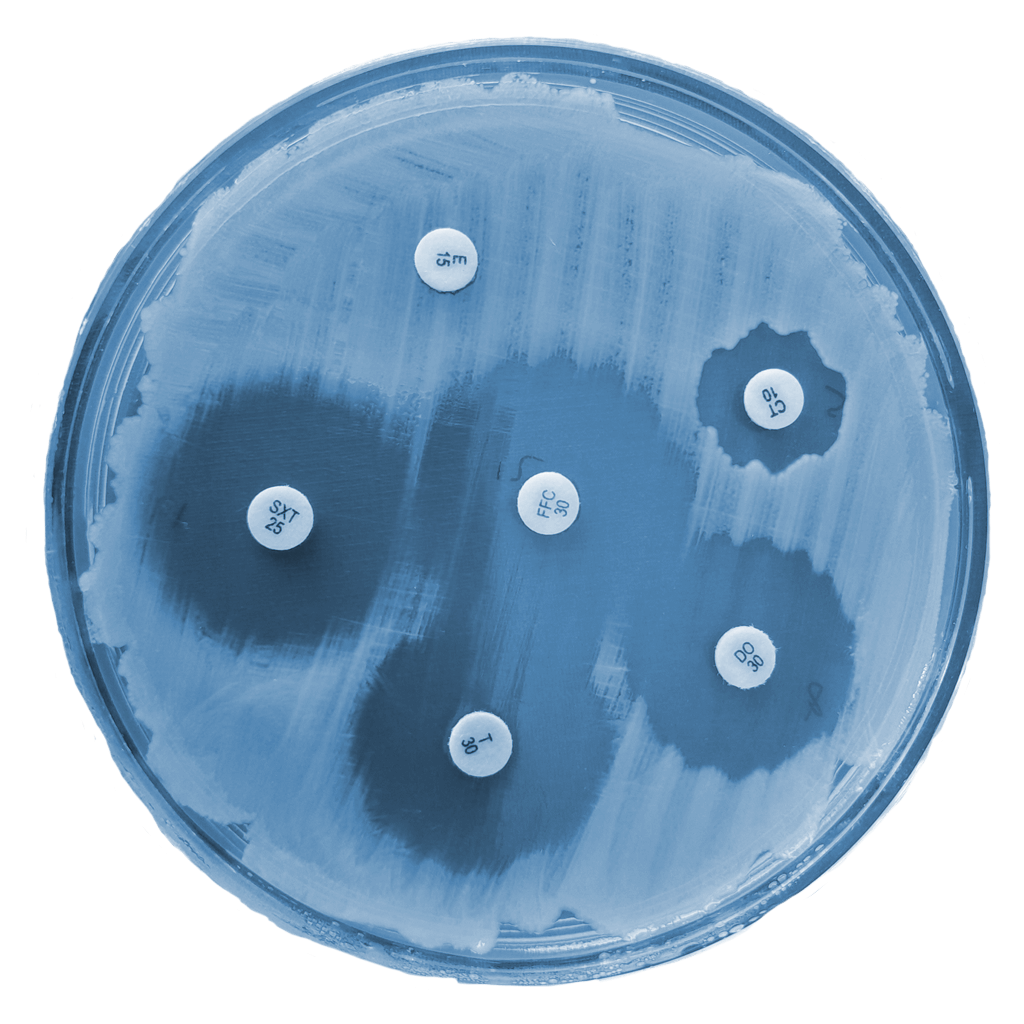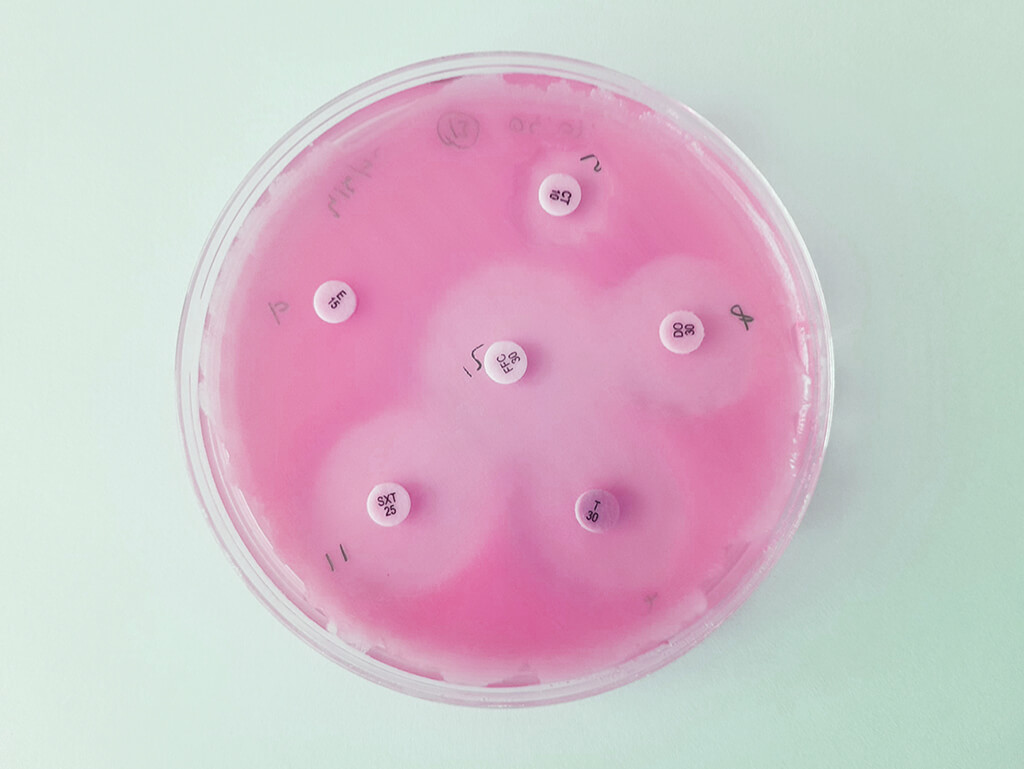What is antibiotic resistance?
Antibiotic resistance is the ability of a microorganism to survive a concentration of an antibiotic active substance that would otherwise destroy a normal population of the given microorganism.
According to some sources, albeit with substantial variations, 50-97% of the antibiotics used around the world are deployed in livestock rearing. Human antimicrobial resistance is also linked to the antibiotics used to treat animals kept for the production of human food. Preventing the emergence of antibiotic resistance in animal husbandry is one of the most important tasks of responsible experts working for animal health and for the production of healthy foods.
Appropriate and timely antibiotic therapy, taking the constant spread of bacterial resistance into consideration, is of crucial importance in maintaining the health status of animal stocks. When using such therapies, every effort must be made to preserve the future efficacy of the antibiotics by avoiding the development or selection of resistant mutations.

Precise diagnosis is a prerequisite for selecting the suitable antibiotic. The Marek Lab has all the equipment and the trained and experienced experts needed to make precise diagnoses. A wide range of diagnostic tests are available, from conventional microbiological methods to modern molecular biological tests.
Prophyl Ltd. is committed to the prudent use of antibiotics in veterinary practice. The prudent use of antibiotics contributes greatly to the suppression of resistant strains of bacteria and also helps to prevent the further spread of infection, to reduce the time taken to recover from an infection or disease, and/or to reduce the incidence of systemic complications.



